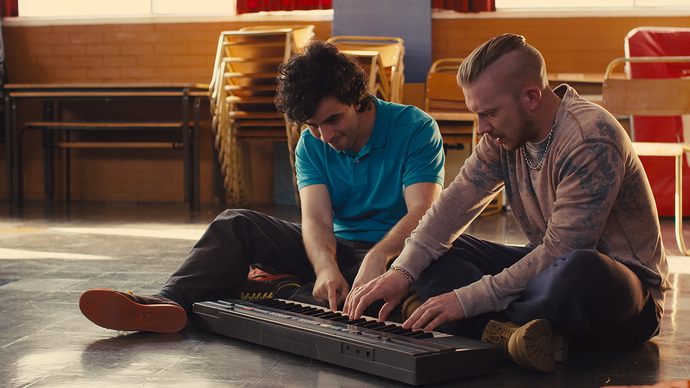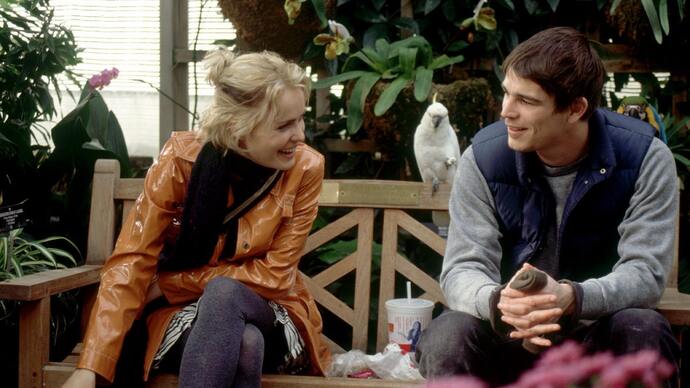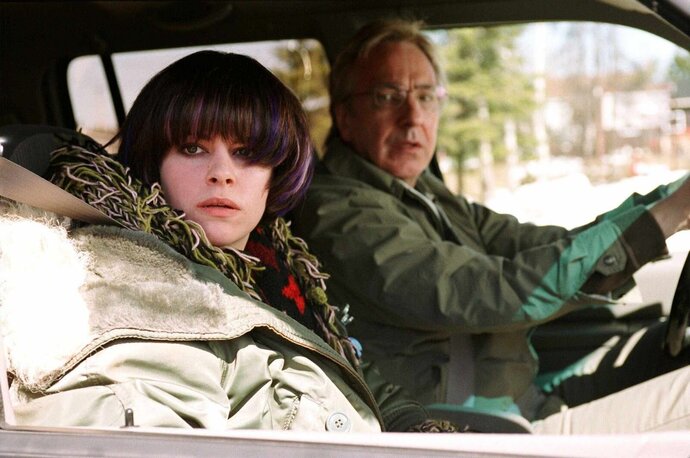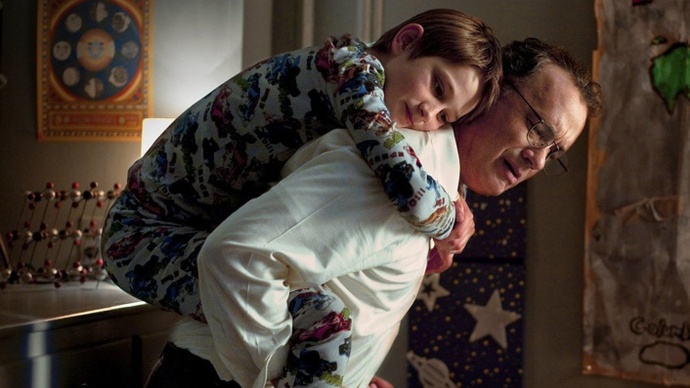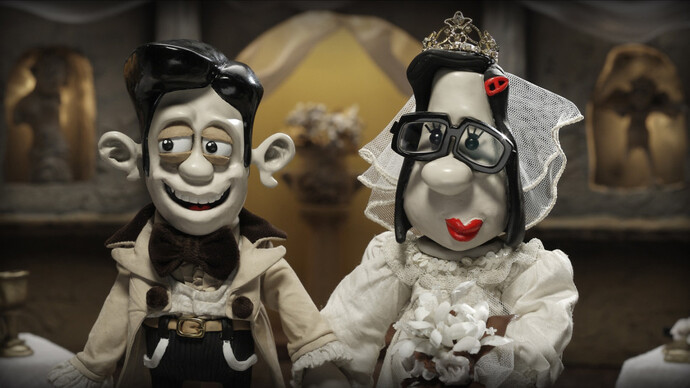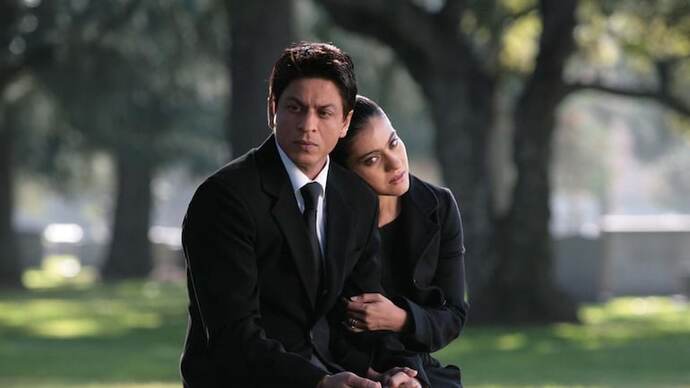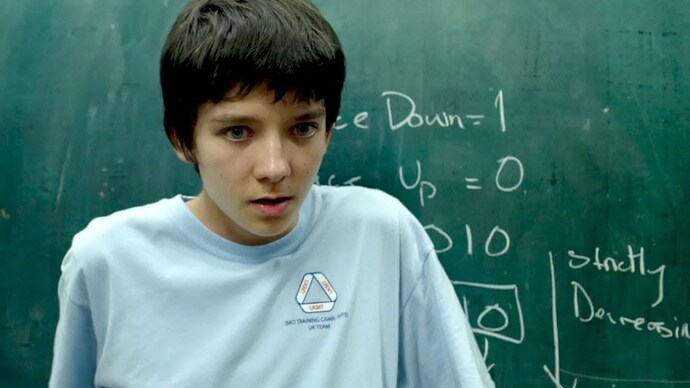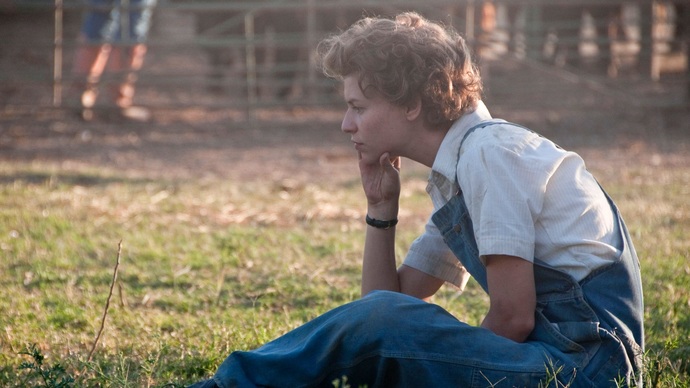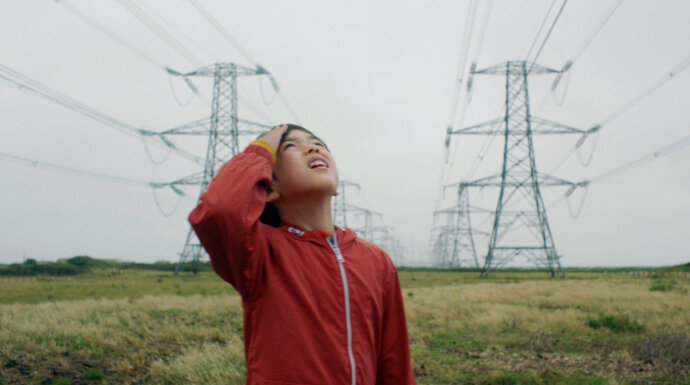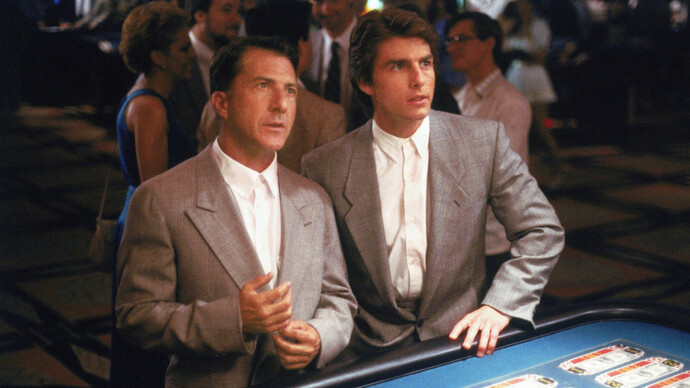In an individual, the manifestation of autism can be anywhere from mild to full-blown Asperger’s Syndrome. No two people with autism are exactly alike in their autism. TV shows like Atypical and The Good Doctor have brought autism awareness to the small screen, featuring autistic protagonists navigating their complicated lives. But what about in the movies? Here are some of the best movies about autism and autistic characters that attempt to translate the struggles and victories of living with autism.
10. I Used to Be Famous (2022)
Recently released on Netflix, I Used to Be Famous centers on a two-man boyband in Peckham—and they’re worlds away from the charismatic teen heartthrobs who are usually plastered on magazine covers. Vince (Ed Skrein) is a washed-up musician and Stevie (Leo Long) is a young, autistic drummer. An impromptu street jam brings their paths together, and Vince tries to atone for his past failures through Stevie. Long, who is actually diagnosed with autism spectrum disorder in real life, was a passionate folk musician determined to break into the film industry—and he succeeded with his exceptional performance as Stevie. Eddie Sternberg’s comedy-drama is indulgent yet endearing.
9. Mozart and the Whale (2005)
Released as Crazy in Love in Europe, Mozart and the Whale is a feelgood rom-com with a sprinkling of drama. In it, Petter Næss directs Josh Hartnett and Radha Mitchell as a couple who meet in an autism support group. Although it’s good to share company with someone who actually shares your condition, it can also make a relationship explosive, fragile, and vulnerable to triggers—as they soon find out. While both Hartnett and Mitchell were praised for their honest, rough-edged performances, Mozart and the Whale was criticized for intentionally perpetuating the idea that all autistic people have savant skills (for the sake of “uplifting” neurotypical viewers). That said, the film’s depiction of Asperger’s syndrome is pretty accurate. Not so surprising when you learn that Mozart and the Whale was written by Ron Bass, who penned Rain Man 17 years prior.
8. Snow Cake (2006)
The plot of Snow Cake might sound a little dull and short-lived, but the established cast inject it with vibrant color. Alan Rickman plays a typical middle-aged British man named Alex, who reluctantly picks up a teen hitchhiker one day. When a car accident kills the girl, Alex travels to her home in Ontario to inform her mother Linda. After hearing the news, Linda seems to understand the situation but displays no signs of grief. That isn’t because Linda is a bad person, but because she’s unable to express emotions. Sigourney Weaver does a brilliant job portraying the autistic mother with cleanliness mania, whom Alex refuses to leave until he can find someone to take our her garbage (which her daughter used to do). Marc Evans directs this lowkey indie drama—a bittersweet rendition of what it’s like to live under the unstable dictation of autism.
7. Extremely Loud and Incredibly Close (2011)
The death of a father is traumatic enough as it is. But when your brain doesn’t know how to process it? That’s even tougher. Stephen Daldry’s heartbreaking movie Extremely Loud and Incredibly Close stars Tom Hanks as a lovable dad who’s caught up in the September 11 attacks. He leaves behind his nine-year-old autistic son Oskar, who crumbles at the thought of living without his main support system. Sure, Oskar’s mom does the best she can (expertly played by Sandra Bullock, as always), but it was always Oskar’s dad who understood him the most. Thomas Horn’s raw portrayal of Oskar holds the somewhat pretentious film together. Oskar is painfully honest and self-destructive, but he has golden intentions—and is surprisingly relatable to all viewers.
6. Mary and Max (2009)
Critics absolutely loved Mary and Max, but it’s definitely a niche taste. The Australian stop-motion animation is one for the adults rather than the kids, as it explores themes like depression, addiction, neglect, and suicide. That’s not exactly a recipe for laughs! But it’s these timely subjects—and Adam Elliot’s handling of them—that make this such an important film. Mary begins the movie as an eight-year-old girl in the 1970s who’s bullied at school and neglected by her alcoholic mother. Mary’s only friend is her pen pal Max, an obese middle-aged man who’s prone to panic attacks. As we watch Mary grow up, she continues her correspondence with Max, who eventually admits he has Asperger’s syndrome. Despite its bleak themes and color palette that echo a drizzly noir, Mary and Max is an inspirational story at its core.
5. My Name Is Khan (2010)
Branching out of mainstream Hollywood, we have My Name Is Khan—a Hindi-language social drama directed by Karan Johar. It received high praise, both domestically and overseas, not only for its representation of Islamophobia but autism as well. Rizwan Khan is a middle-class Muslim with Asperger’s, who moves out of Mumbai to live in San Francisco. The timing is pretty terrible for Khan, however, as the 9/11 attacks leave him facing an onslaught of prejudice. Johar does try a little too hard to make Khan into a superman, but at least he’s not the autistic-genius stereotype. The director was mostly known for his romance movies, so this genre deviation was a bit risky. But it worked!
4. A Brilliant Young Mind (2014)
A Brilliant Young Mind (titled X+Y outside the US) is the story of, well, a brilliant young mind! It was inspired by the director’s own documentary—Beautiful Young Minds—from seven years prior. In this film, director Morgan Matthews explores the link between autism and mathematical ability. Asa Butterfield stars as Nathan, a teenage prodigy who’s competing in the International Mathematical Olympiad. With the help of his single mum (Sally Hawkins) and teacher (Rafe Spall), Nathan ventures out of his comfort zone and into Taiwan. His social anxiety nearly gets the better of him, but Nathan pulls through to the finals. Unlike most kids his age, Nathan finds algebra much easier to understand than people—including himself. A Brilliant Young Mind is an elegant look at ambition, grief, and love.
3. Temple Grandin (2010)
Some of the movies on this list got a bad rap for trying to turn every autistic character into a genius of some sort, but Temple Grandin truly was a genius! In fact, Time nominated her in 2010 as one of the most influential people in the world under the category “Heroes.” Although animals are her main target of study and passion, she also goes out of her way to help people like herself. An autistic activist and author, Temple Grandin speaks out for both animal rights and neurodiverse acceptance. Mick Jackson’s biopic takes us through her life from a difficult childhood (back when autism was considered a type of schizophrenia) to her revolutionary career. Claire Danes holds the screen firmly, all while dodging most of the tropes that exist in this territory.
2. The Reason I Jump (2020)
A poetic documentary based on the best-selling novel by Naoki Higashida, The Reason I Jump is a movie that taps into the richness and overwhelming nature of a sensory universe. The book, which Higashida wrote when he was still a child, is like an inner map of his mind as he views the world through nonverbal autism. Jerry Rothwell captures the sensitivity of this profound biography with grace and understanding. The Reason I Jump opened up a dialogue about autism through its non-speaking creator, immersing us in a life experienced differently but not less. Rothwell uses the language of cinema—rather than words—to paint a dreamy portrait that distills Higashida’s spirit and experiences.
1. Rain Man (1988)
Before Rain Man, autism was rarely seen on the big screen. It took many years for the disorder to be properly researched and diagnosed, so it wasn’t really a thing in cinema—and Rain Man was a first. Barry Levinson’s Oscar-winning road trip drama gave space to neurodiverse voices in Hollywood, and much of its success came on the back of Dustin Hoffman’s performance as the autistic savant Raymond. Tom Cruise stars as Raymond’s estranged brother Charlie Babbitt, a scheming and materialistic car salesman. When Charlie discovers he has a brother—one that unlocks his inheritance—he selfishly ups Raymond from an institution. At first, Charlie uses Raymond’s superb recall and talent for blackjack for his own gains. But the high maintenance nature of Raymond’s disability brings Charlie’s conscience under the spotlight.

